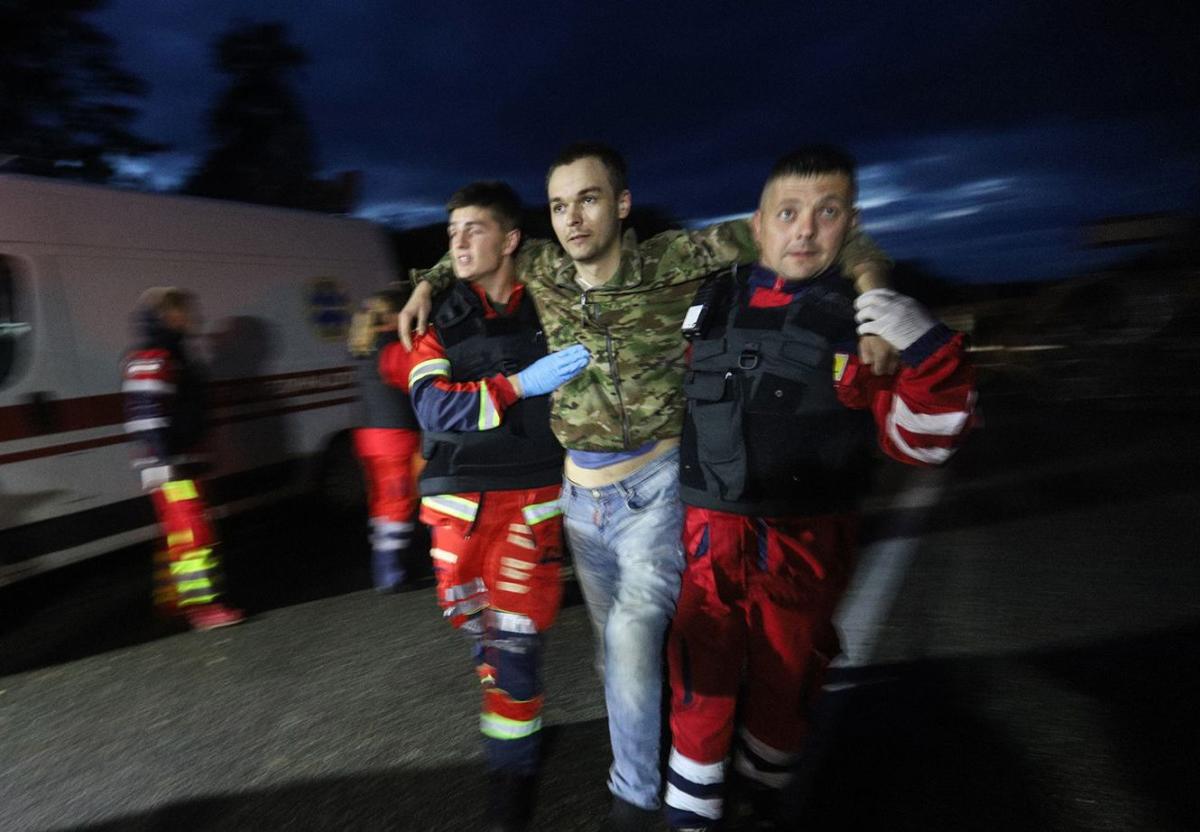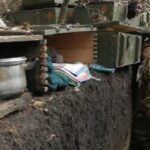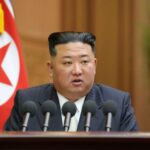
(Bloomberg) — Ukraine sealed a major prisoner swap with Russia, an exchange that included handing over a key ally of President Vladimir Putin in return for leading defenders of Mariupol under a deal facilitated in part by Turkey and Saudi Arabia.
Putin’s order to call up as many as 300,000 reservists to fight in Ukraine triggered protests around the country, the biggest since the early days of the war.
President Joe Biden excoriated Putin for making “overt nuclear threats” to Europe as the Russian leader escalated his war in Ukraine with the partial mobilization and vowed to annex territory. The G-7 followed up Thursday with similar commentary, including condemnation of Russia’s planned “sham referenda” in occupied Ukraine.
(See RSAN on the Bloomberg Terminal for the Russian Sanctions Dashboard.)
Key Developments
-
Putin’s Call-Up Brings Reality of War Home To Many Russians
-
Ukraine Frees Putin Ally for Hundreds of Troops in Major Swap
-
Ukraine Seizes Dozens of Russian Tanks Left by Fleeing Forces
-
Energy Crisis Empowers Europe’s Populists Harnessing Anger
-
North Korea Denies Selling Russia Arms, Blasts US for ‘Rumors’
On the Ground
Nearly seven months into the war, Russia declared a “partial mobilization” calling up 300,000 reservists in a major escalation of its flagging invasion of Ukraine. Ukrainian forces conducted strikes north and east of the city of Kherson against Russian logistics, military, and transportation assets in the Kherson region, according to the latest report from the Washington-based Institute for the Study of War. Russia hit Mykolayiv and Zaporizhzhia with 18 rockets early this morning, according to the Mykolayiv region’s governor and Zelenskiy’s office. No casualties were reported.
(All times CET)
Putin Ally Says Nuclear Shield to Protect Annexed Ukraine Regions (2:17 p.m.)
Former President Dmitry Medvedev, now a top security official, said Russia reserves the right to use nuclear weapons to protect newly-annexed Ukrainian regions, joining President Vladimir Putin in ramping up atomic threats.
Four regions in eastern and southern Ukraine are due to hold referendums on joining Russia starting from Friday. The votes have been denounced as “shams” by the G-7.
“The defense of all territories will be significantly bolstered by the Russian armed forces” drawn into a new mobilization announced this week, Medvedev said on Telegram.
Baltics Won’t Open Borders For Russians Fleeing Mobilization (2:03 p.m.)
The leaders of the Baltic states said their countries won’t offer asylum or humanitarian visas to Russians trying to flee Putin’s latest mobilization.
Lithuanian Prime Minister Ingrida Simonyte said humanitarian help is reserved for people who’ve consistently demonstrated their position against the war. Estonian Prime Minister Kaja Kallas said Russians are responsible for their leaders’ actions and asylum is open for opposition activists only.
“I could hardly understand a situation in which we’d allow people to enter Lithuania on humanitarian grounds just because the war was OK for them when they saw it on TV, sitting on a sofa, but it is no longer OK when your government and your (Defense Minister Sergei) Shoigu calls you to join the army,” Simonyte said.
G-7 Deplores Russia’s Referendum Plans (1:28 p.m.)
Foreign ministers of the G-7 on Thursday “strongly condemned” Russia’s plan to conduct “sham referenda” on Ukrainian territory in the next few days.
“Any referenda held under conditions of Russian military presence, intimidation, and forced deportation cannot be free or fair,” Germany’s Annalena Baerbock said in a statement on behalf of the group following a meeting at the UN General Assembly.
The ministers called on all states to condemn any votes and not to recognize the results. Further targeted sanctions on Russia are being pursued.
EU Sets Moderate Goals in New Sanctions Talks (1:04 p.m.)
The EU’s next round of sanctions targeting Russia for its latest escalation against Ukraine is likely to be limited to further trade restrictions and new listings, according to people familiar with the matter.
The bloc has been working on additional bans on key technologies and components, but there’s little appetite for major items according to one of the people. Much of the current focus is on monitoring and enforcing existing measures, including by analyzing trade flows with third countries that may be helping Moscow soften the impact of some of the sanctions imposed so far.
EU member states are also set to discuss how to change already approved oil sanctions to make way for a price cap agreed in principle by the Group of Seven nations.
Russia, Iran, China to Hold Joint Naval Drills (11 a.m.)
Iran, Russia and China will hold joint naval exercises in the northern Indian Ocean this fall, the semi-official Iranian Mehr news agency reported.
Other countries including Oman and Pakistan may also join, Mehr cited Iranian Chief of Staff Major General Mohammad Bagheri as saying. Iran, Russia and China held joint drills in the same area in January.
Russia Says Terror Attack Thwarted on Turkey, EU Energy Link (10:41 a.m.)
Russia’s security service said it thwarted a planned terror attack on infrastructure delivering energy to Turkey and Europe, raising concerns over supplies to the region.
The Federal Security Service “prevented an attempt by the Ukrainian special services to commit a sabotage and terrorist act at the facility of the oil and gas complex that supplies energy to Turkey and Europe,” according to a statement on its website. A Russian citizen, whom the nation’s security service claimed was recruited by Ukraine’s special service, was detained.
“We are not commenting on fantasies of Russian special services,” a representative of Ukraine’s State Security Service said.
Hundreds Detained Around Russia in Anti-Draft Protests (10:23 a.m.)
President Putin’s order to call up as many as 300,000 reservists to fight in Ukraine triggered alarm and demonstrations as Russians were forced to confront the reality of the deadly conflict.
Police detained about 1,400 people at protests against the order in 38 cities Wednesday night, according to the OVD-Info monitoring group, marking the biggest protests since the early days of the war.
Some of the male detainees were handed draft notices.
Orban Says EU Should Withdraw Sanctions Against Russia (8:54 a.m.)
The European Union should scrap its sanctions against Russia by the end of this year, Hungarian Prime Minister Viktor Orban said, according to Magyar Nemzet newspaper which is closely affiliated with the premier’s party.
His call came just as EU foreign ministers agreed to bring forward additional restrictive measures against Russia as Moscow prepares to annex further parts of Ukraine.
North Korea Denies Selling Russia Arms (2:17 a.m.)
North Korea denied that it has sold arms to Russia and blasted the US and “other hostile forces” for what it saw as spreading rumors that Kim Jong Un’s regime was aiding Moscow as it fought in Ukraine.
“We have never exported weapons or ammunition to Russia before and we will not plan to export them,” the state’s official Korean Central News Agency cited an unnamed vice director general in the Defense Ministry’s General Bureau of Equipment as saying.
US Pledges Support for Ukraine as Long as Needed (1:23 a.m.)
The US will continue to support Ukraine “as long as it takes,” Secretary of State Antony Blinken said in a statement.
Partial mobilization in Russia “reflects the Kremlin’s struggles on the battlefield, the unpopularity of the war, and Russian unwillingness to fight in it,” he said.
215 Soldiers Released by Russia in Prisoner Swap With Ukraine (1:30 a.m.)
Ukrainian soldiers, including 108 defenders of the Azov battalion, have been swapped for 55 Russian prisoners, Ukrainian and Russian officials said.
“This was the most difficult prisoner exchange,” Interior Minister Denys Monastyrsky said. Saudi Arabia helped facilitate part of the swap, winning praise from western officials for the effort.
Ukraine Calls for More Weapons at UN (1 a.m.)
Ukrainian President Volodymyr Zelenskiy also called for more weapons as he addressed the United Nations General Assembly by video conference on Wednesday.
“We cannot agree to a delayed war. Because it will be even hotter than the war now,” he said. “For us, this is a war for life. That is why we need defense support – weapons, military equipment and shells. Offensive weapons, a long-range one is enough to liberate our land, and defensive systems, above all, air defense.”
More stories like this are available on bloomberg.com
©2022 Bloomberg L.P.




